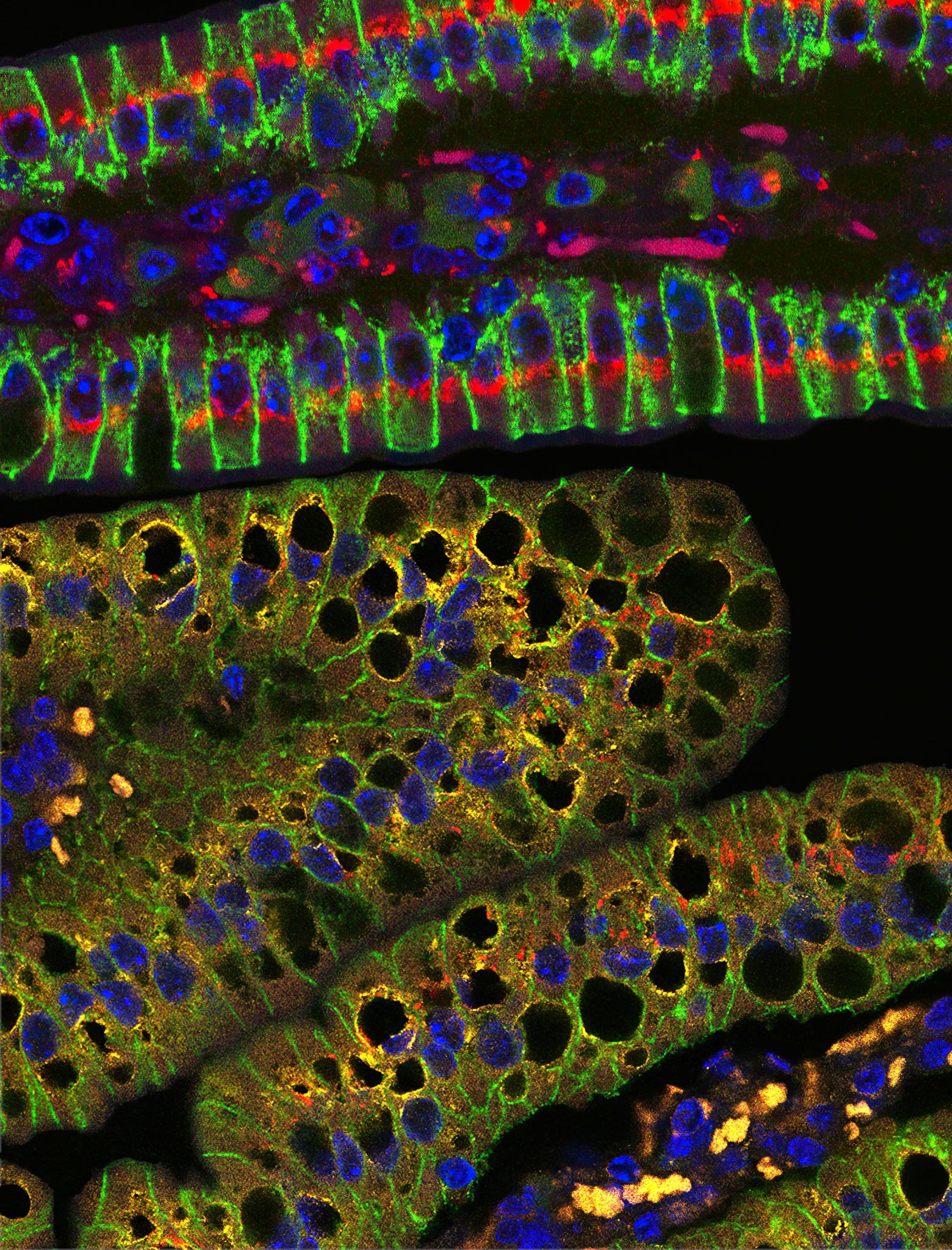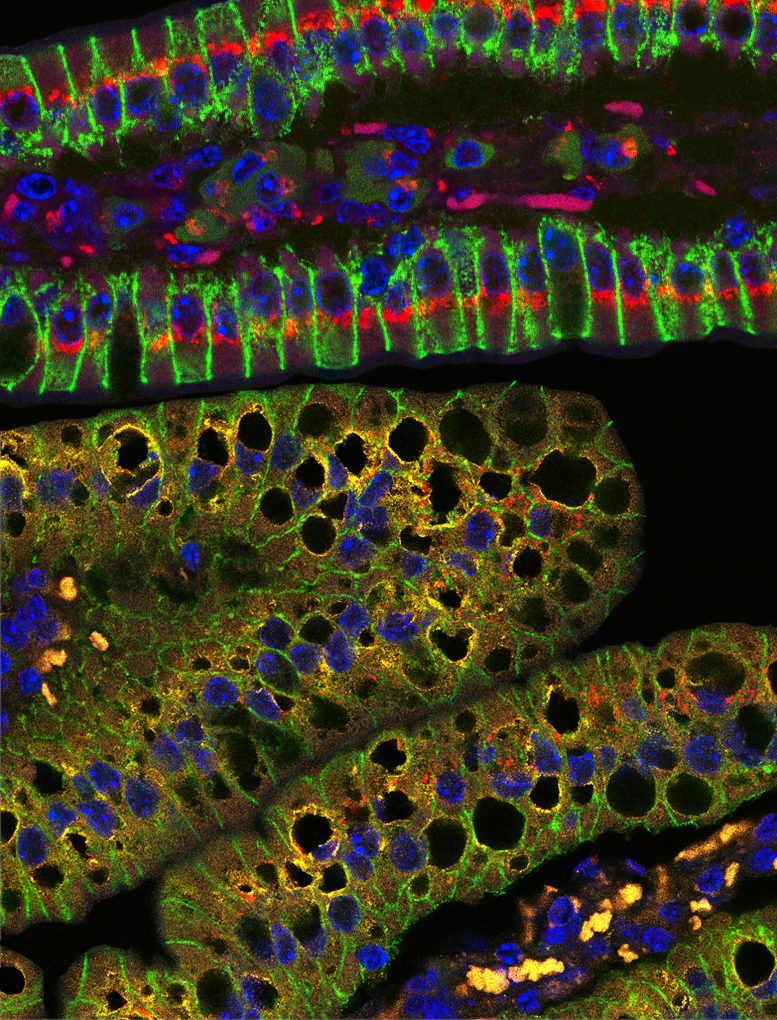
Scientists Uncover the Hidden Role of Mitochondria in Dietary Fat Processing
-
by Anoop Singh
- 11

Pictures show small intestinal villi from wild type (top) and enterocyte-specific DARS2 knockout mice (bottom) stained for PLIN2 (yellow), TGN38 (red), E-cadherin (green) and DNA (DAPI, blue). Credit: Chrysanthi Moschandrea
Maintaining balanced lipid levels is essential for good health. Consuming too much fatty food can lead to metabolic disorders like obesity and atherosclerosis, but fats are also a vital part of our diet. When digested, lipids provide the body with crucial building blocks and aid in the absorption of vital vitamins.
In a new study published in the journal Nature, a team of researchers led by Professor Manolis Pasparakis and their collaborators Professor Aleksandra Trifunovic and Professor Christian Frezza at the Excellence Cluster CECAD of the University of Cologne, and Professor Jörg Heeren at the University of Hamburg, report on a new mechanism that regulates the processing and transport of dietary lipids by the intestine.
Mitochondrial Function in Enterocytes
The researchers studied the function of mitochondria – organelles acting as powerhouses of the cell – in enterocytes, cells that line the intestine and specialize in the absorption and transport of nutrients from digested food. They found that disruption of mitochondrial function in the intestines of mice caused abnormal accumulation of dietary fat in enterocytes and impaired delivery of lipids to the peripheral organs.
A key finding of the study was that, when mitochondria did not function properly, enterocytes showed impaired packaging and transport of lipids in the form of chylomicrons. Chylomicrons are crucial carriers of dietary fats, and their proper formation and transport are essential for the absorption of nutrients.
Implications of the Study
“This discovery marks a significant leap forward in understanding the crucial role of mitochondria in dietary lipid transport and metabolism,” said Dr Chrysanthi Moschandrea, the lead author of the study. The implications of this discovery go beyond the realm of basic research. “These findings provide new perspectives for the better understanding of the gastrointestinal symptoms in patients suffering from mitochondrial disease, and may also lead to new therapeutic approaches,” added Professor Aleksandra Trifunovic.
Reference: “Mitochondrial dysfunction abrogates dietary lipid processing in enterocytes” by Chrysanthi Moschandrea, Vangelis Kondylis, Ioannis Evangelakos, Marija Herholz, Farina Schneider, Christina Schmidt, Ming Yang, Sandra Ehret, Markus Heine, Michelle Y. Jaeckstein, Karolina Szczepanowska, Robin Schwarzer, Linda Baumann, Theresa Bock, Efterpi Nikitopoulou, Susanne Brodesser, Marcus Krüger, Christian Frezza, Joerg Heeren, Aleksandra Trifunovic and Manolis Pasparakis, 20 December 2023, Nature.
DOI: 10.1038/s41586-023-06857-0
Pictures show small intestinal villi from wild type (top) and enterocyte-specific DARS2 knockout mice (bottom) stained for PLIN2 (yellow), TGN38 (red), E-cadherin (green) and DNA (DAPI, blue). Credit: Chrysanthi Moschandrea Maintaining balanced lipid levels is essential for good health. Consuming too much fatty food can lead to metabolic disorders like obesity and atherosclerosis, but fats…
Pictures show small intestinal villi from wild type (top) and enterocyte-specific DARS2 knockout mice (bottom) stained for PLIN2 (yellow), TGN38 (red), E-cadherin (green) and DNA (DAPI, blue). Credit: Chrysanthi Moschandrea Maintaining balanced lipid levels is essential for good health. Consuming too much fatty food can lead to metabolic disorders like obesity and atherosclerosis, but fats…
